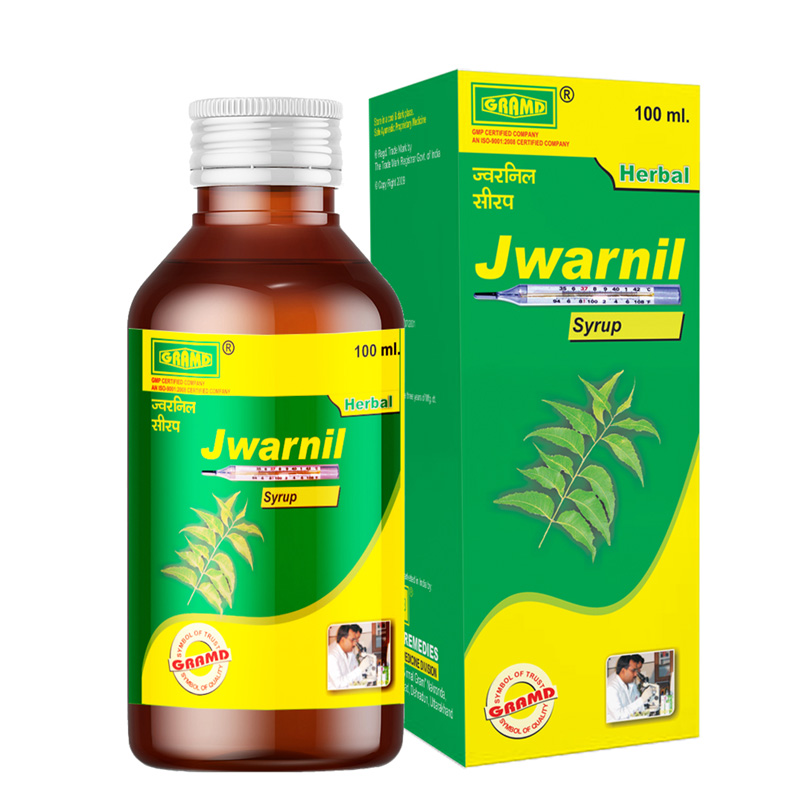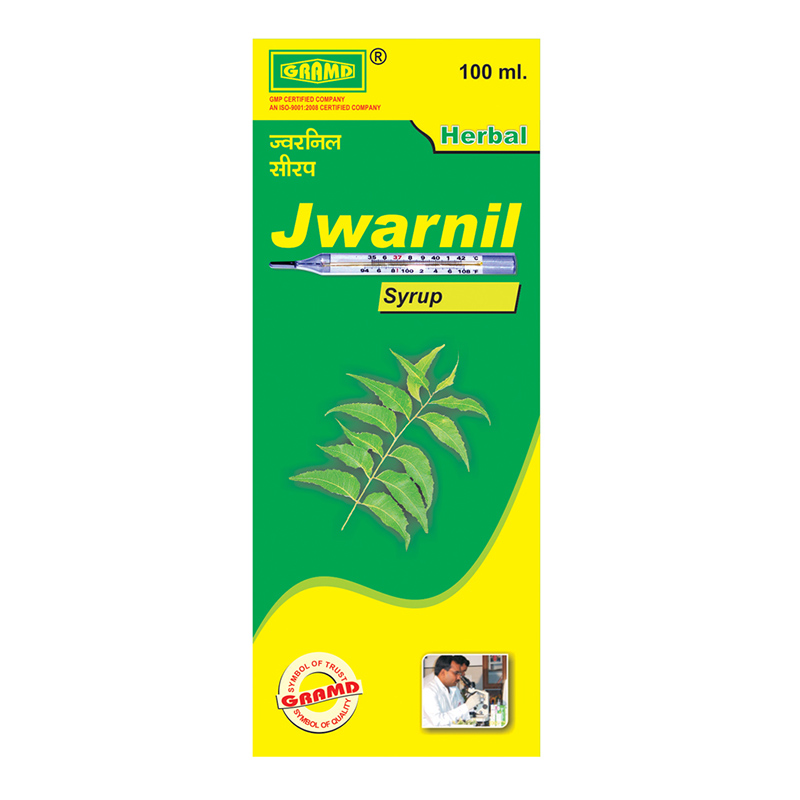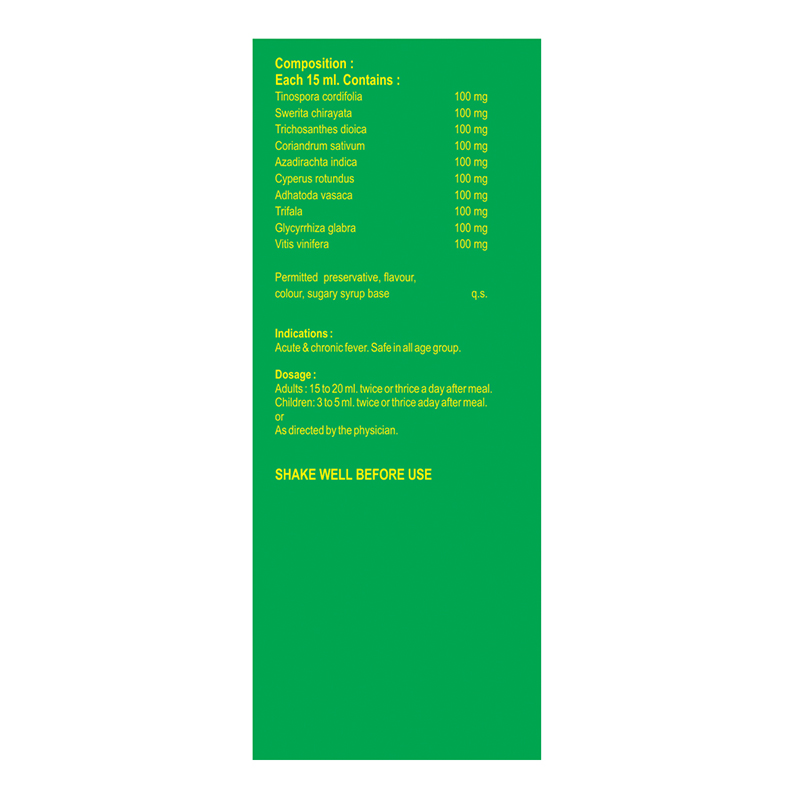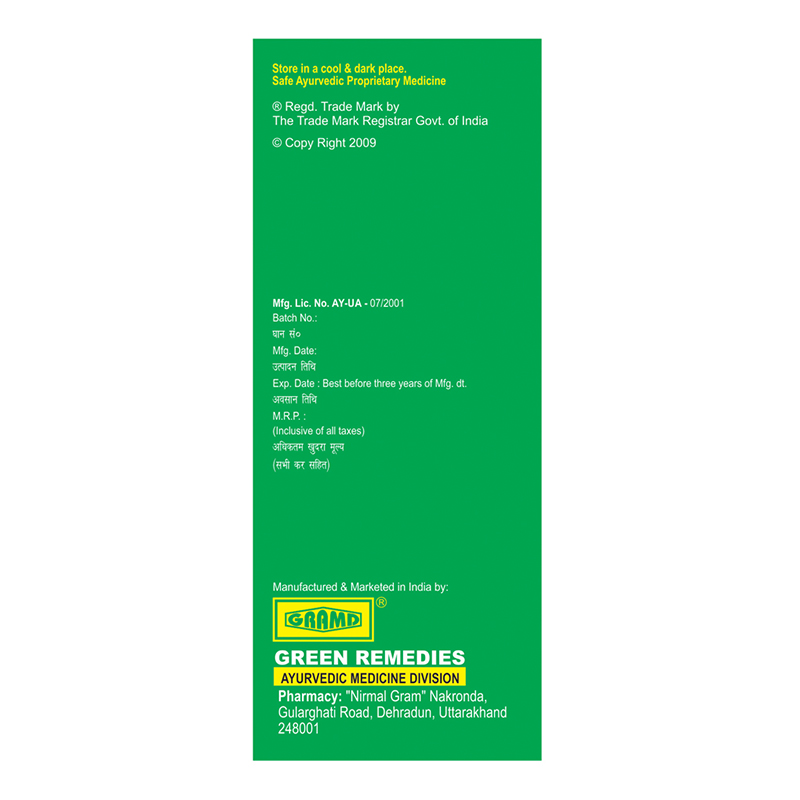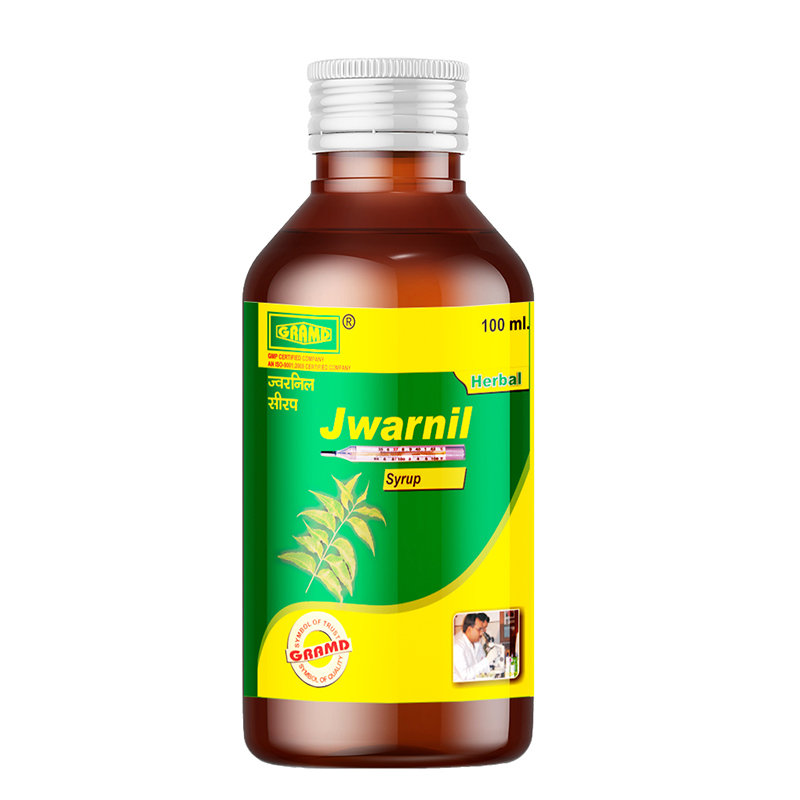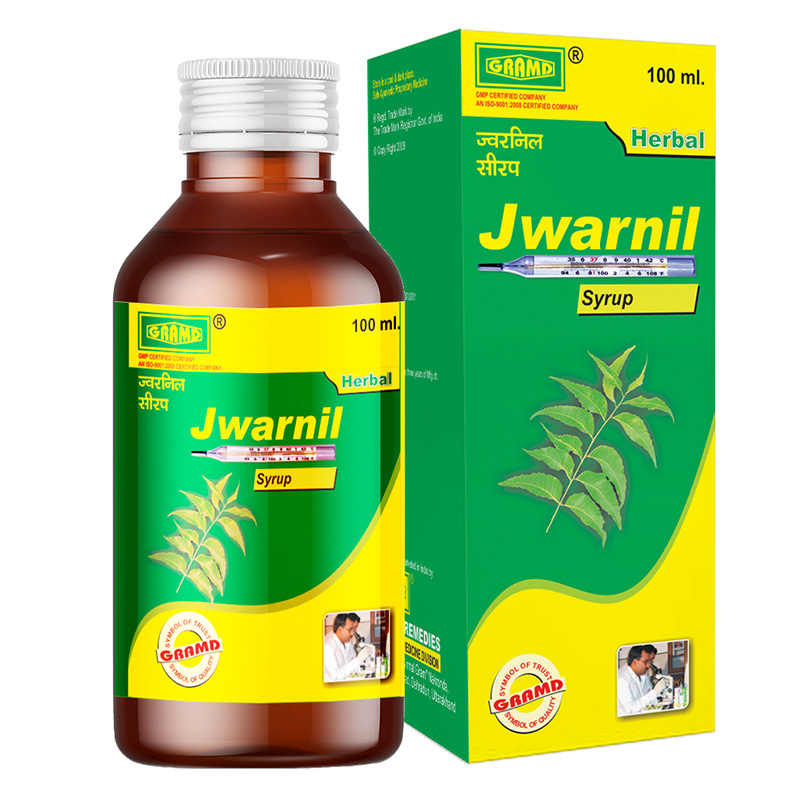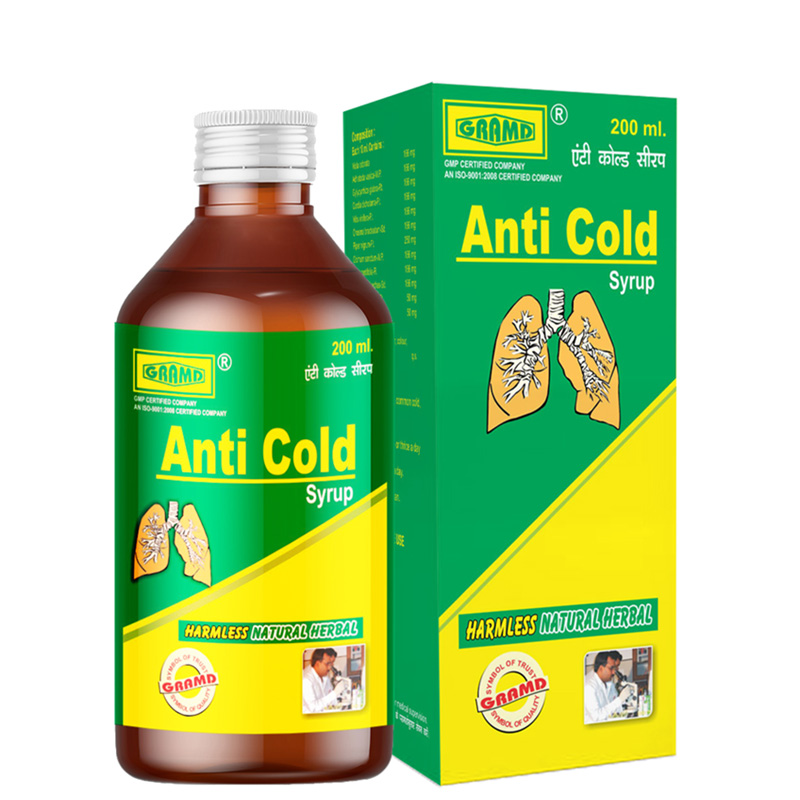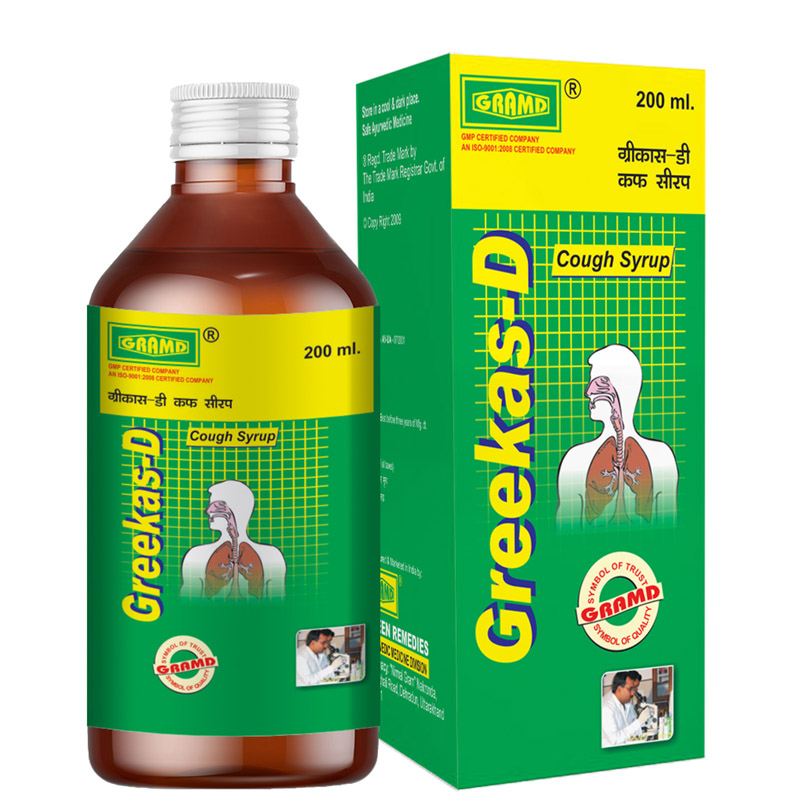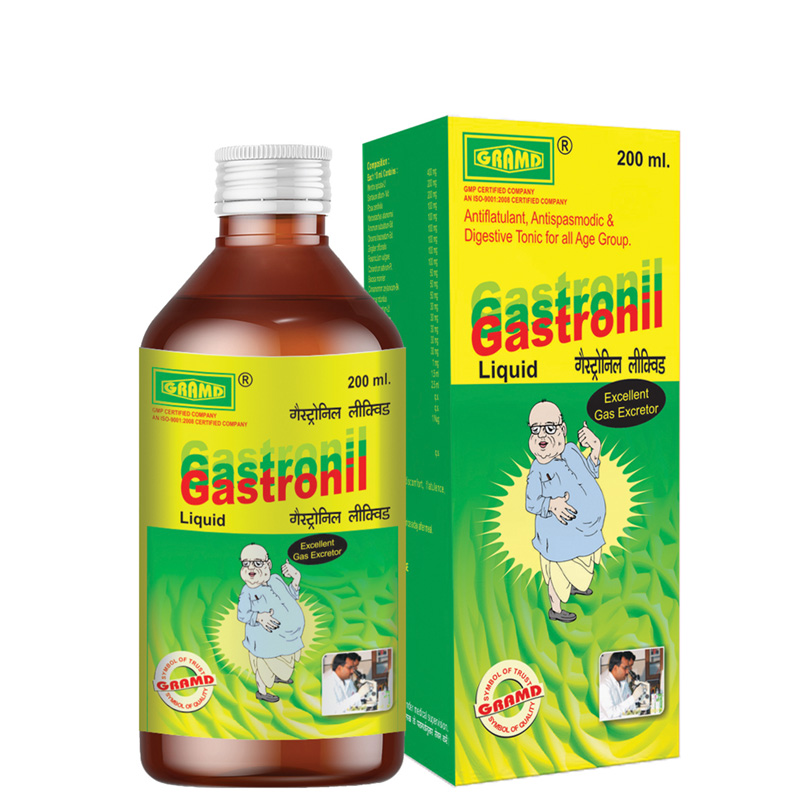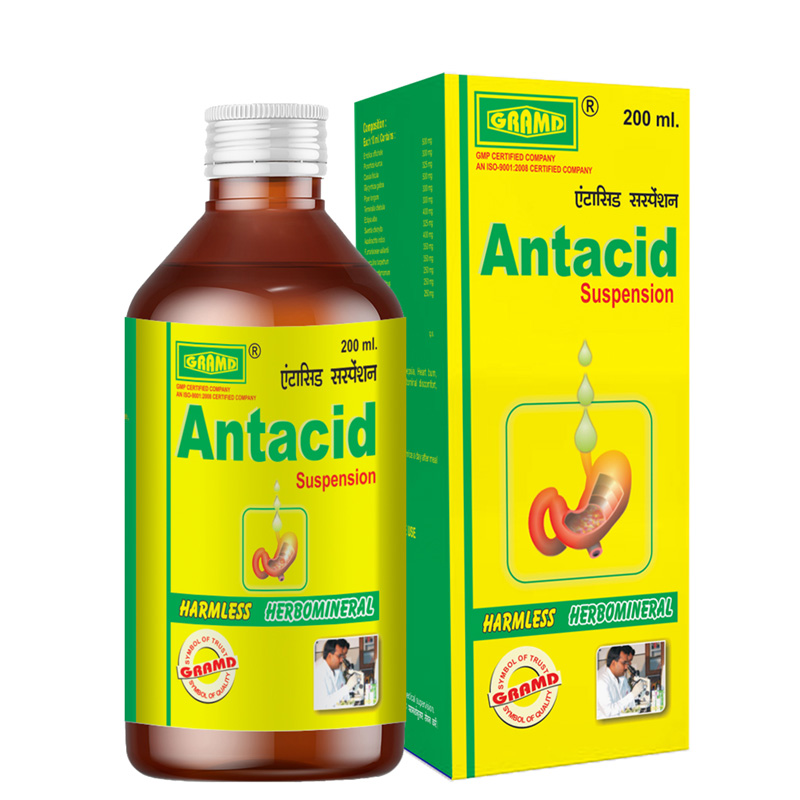Description
Composition:
Adusa (Adhatoda vasaca), Chirayata (Swerita chirayata), Dhaniya Giri (Coriandrum sativum), Draksha (Vitis vinifera), Giloe (Tinospora cordifolia), Neem Ki Chaal (Azadirachta indica), Nagarmotha (Cyperus rotundus), Patol Patra (Trichosanthes dioica), Trifala (AFI), Yastimadhu (Glycyrrhiza glabra).
Indications:
- Jvara hara(useful for fever)
- Kapha-Vata hara (treats Kapha and Vata irregularities)
- Kasahara (Relieves cough)
- Kantya (relieves sore throat)
- Anulomana (improves breathing)
- Ama nashak (removes toxins)
- Svasha hara (treats asthma)
- Amahara (treats indigestion)
- Dahahara (relieves burning sensation)
- Shwasha (relieves breathing difficulties)
- Deepana (enhances stomach fire)
- Pachana (helps in digestion)
- Rochana (stimulates appetite)
- Kupachan (prevents bloating)
- Agnimandya (prevents indigestion)
- Gulma (treats abdominal tumours)
- Grahani (treats irritable bowel syndrome)
- Shonitasthapana (prevents bleeding)
- Pandu (treats skin disorders)
- Raktadoshahara (blood purifying)
- Vran Ropana (heals wounds)
- Vamanopaga (treats emesis)
- Krimihara (relieves intestinal worms)
- Hridaya (treats heart problems)
- Rochana (stimulates appetite)
- Hikkanigrahana (treats incessant hiccups)
- Triptighno (relieves pseudo-satiation)
- Balya (increase strength)
- Rasayani (rejuvenates the whole body)
- Vishama jwara (treats intermittent fever)
- Meha/Prameha (treats diabetes)
- Varna ayu bala vardhana (de colour, lifespan and strength)
following healing properties:
- Antipyretic
- Anti-typhoid
- Anti-viral
- Antimalarial
- Anti-microbial
- Detoxifying
- Diaphoretic
- Haematinic
- Neuroprotective
- Cardioprotective
- Hepatoprotective
- Spleno-protective
- Appetizer
- Digestive
- Antioxidant
- Antipruritic
Dosage:
Syrup-
- 5-10 ml 2 to 3 times a day with luke warm water after meal.
Or As directed by the physician.
Cautions: - Don’t use during pregnancy and lactation.
- Pregnant and breast feeding women should use ayurvedic medicine with caution, as some herbs may be unsafe during this time.
- Always notify your doctor if your pregnant or have any unique health concerns
- Herbal interactions- If your taking prescription medications be aware of potential interaction between ayurvedic herbs & conventional drugs.
- Consult both your ayurvedic practitioner & modern healthcare provider to ensure compatibility.
- Avoid self diagnosis.
- Allergic reactions to ayurvedic medicines are rare but possible.
- It is advisable to pay close attention to any adverse reaction, such as skin rashish, digestive issues or respiratory problems and immediately discontinue use if they occur.
- Dose and timings- Always follow the recommended dosage and timing provided by your ayurvedic practitioner more is not necessarily better in ayurveda and excessive of use of certain medicine can lead to imbalances.
- Ayurvedic medicine often work gradually, it may take time to see noticeable result.
- Follow your practitionar’s recommendations faithfully and Avoid switching between medicines too frequently, as it can disrupt the healing process. or As directed by the physician’s.

